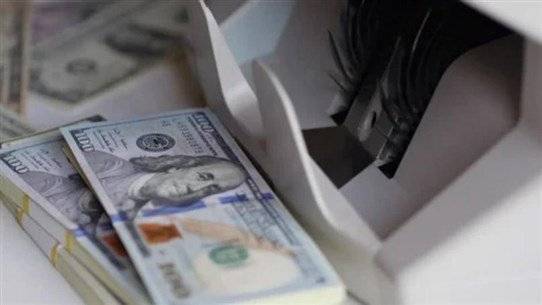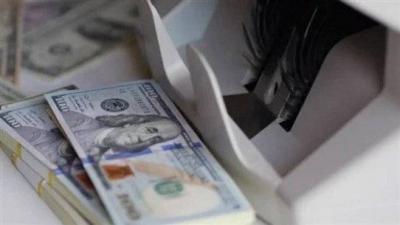Finance Minister Youssef Khalil threw a "sonic bomb" that echoed in the ears of Lebanese citizens on the eve of the parliamentary session to elect a president. He stated to Reuters yesterday that "the central bank will adopt an official exchange rate of 15,000 lira instead of 1,507 starting at the end of October." Before discussing the repercussions of such a decision, which was followed by a clarifying statement from the Ministry of Finance, it is vital to recognize that accepting this possibility before the end of the year "will not have retroactive effect," according to financial advisor Dr. Ghassan Chamas. Consequently, loans in dollars for low-income residents will still be repaid at 1,500 lira, and the value of withdrawals from banks specified in circulars 151 and 158 will not change unless the "central bank" decides otherwise.
If we exclude banking transactions and residential lease contracts, which "are determined according to the minimum wage and by agreement between the landlord and tenant," as stated by economic expert Anis Bou Diab, the "exchange rate adjustment applies specifically to transactions denominated in dollars with the state. This adds a new burden on taxpayers."
Who will be affected by reducing the official exchange rate from 1,500 lira to 15,000 lira? This question has filled the Lebanese space and engaged citizens and experts since Youssef Khalil spoke.
It will first affect those responsible for paying taxes and fees, especially on contracts denominated in dollars, such as the tax on rental value if assessed in dollars. Additionally, the new exchange rate will apply to imported goods subject to taxes. For example, for imported cars exceeding 20 million lira in value, customs duty calculated at 5% based on 15,000 lira will be added, along with an internal consumption tax of 45% also calculated at the official exchange rate of 15,000 lira. The value-added tax imposed on the car's value, plus customs duty and the internal consumption tax, is fixed at 11% and is collected based on decision 893 at the Sayrafa platform exchange rate. Thus, buying a car will become nearly impossible. This equation also applies to food products exempt from customs, which are subject to a "3% tax until now,” where this percentage will be calculated on the exchange rate at 15,000 lira instead of 1,500 lira, leading to massive inflation.
The decision will affect the value of permits for starting projects and businesses. This exchange rate will also significantly impact the accounts of private companies, whether commercial, industrial, restaurant, or hotel-related, as they prepare their budgets in both lira and dollars. Consequently, taxes and fees will be due based on the new exchange rate.
Reducing the national currency's exchange rate tenfold will have a huge impact on trust in both the country and the economy. Everyone knowing about the collapse of the lira's value is one thing, and the state's official acknowledgment of it is another.
Theoretically, decreasing consumption and the increased need for lira to meet obligations at the new exchange rate will lead to a "decrease in demand for dollars both directly and indirectly," according to Bou Diab. "However, matters in Lebanon cannot solely be measured by theoretical science; the realities on the ground may contradict theories and push the dollar upwards due to a lack of trust and certainty."
According to Ghassan Chamas, "The official exchange rate makes a fundamental difference when currency conversion between banks and citizens begins, not between them and the state. The state has previously set its revenues from customs based on an exchange rate of 15,000 lira." However, on the other hand, the state will be forced to pay contractors and suppliers at the rate of 15,000 lira instead of 1,500 lira, thus increasing its expenditures.
Chamas believes that the new exchange rate will not reflect on loans, especially housing loans since they would lead to citizens' bankruptcy, given that monthly payments will exceed their salaries by several multiples. While various international entities emphasize the need to unify the exchange rate at levels close to the parallel market rate, the Ministry of Finance has introduced a new rate that will complicate matters and will not reach a safe harbor of unified pricing.




